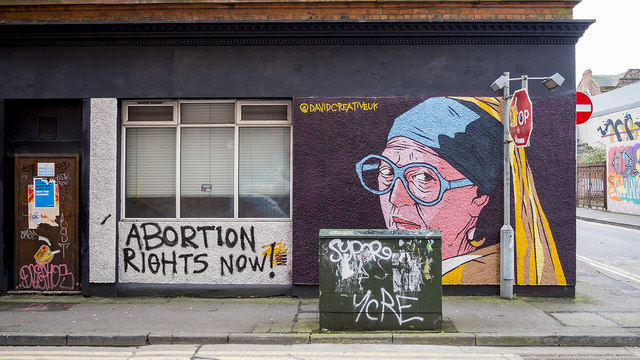Northern Ireland’s anti-abortion laws are in breach of human rights, the High Court ruled today (3 October).
The ruling comes after Sarah Ewart, a woman who was denied an abortion despite doctors telling her the foetus would not survive outside of the womb, challenged the law in a Belfast court.
In 2013 Ewart was forced to travel to England to seek out an abortion, adding more trauma and expense to an already difficult situation.
‘A Vindication Of Women’
Mrs Justice Keegan ruled in favour of Ewart, noting that no other woman should have to experience such a traumatic experience as she did.
Talking outside of the court, Ewart said the ruling would mark a “turning point for women.”
“Today’s ruling is a vindication of all those women who have fought tirelessly to ensure that we never again have to go through what I did in 2013,” she said, adding that her situation “should never have had to come to this”.
Sarah Ewart said: “I’m massively relieved that the judge has ruled in our favour. Too many women in Northern Ireland have been put through unnecessary pain by our abortion law.“ #notacriminal #healthcarenotairfair https://t.co/QtEgcDI5J5 pic.twitter.com/hxuX78jsYn
— Alliance For Choice (@All4Choice) October 3, 2019
Ewart, who does not describe herself as an activist, was motivated to take the case to the High Court in her own name after the Northern Ireland Human Rights Commission failed to win a Supreme Court appeal on abortion laws last year.
Although the judges agreed that existing legislation on abortion was incompatible with human rights, they dismissed the case, and said the organisation “did not have the legal standing to bring such a challenge.”
Commenting on the ruling, commission spokesperson Les Allamby said: “Sarah should not have had to take this case in the first place.”
When Will Anti-Abortion Laws In Northern Ireland Be Over Turned?

Image Credit: Pixabay
The High Court ruling has come ahead of impending legislation which has already been passed in Westminster to decriminalise abortion in Northern Ireland on 21 October, unless a deal is struck to restore devolution in Northern Ireland.
The country will also have to legalise same-sex marriage when the deadline hits.
Northern Ireland’s Assembly has been dissolved for nearly three years due to a major row between the two main political parties, the DUP and Sinn Féin.
Currently, there is no sign that they will reach a resolution by 21 October, and so it’s likely that – despite this historic case ruling – it will be the intervention by Westminster that brings Northern Ireland into line with the rest of the UK when it comes to human rights.







